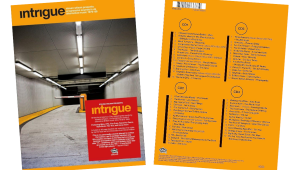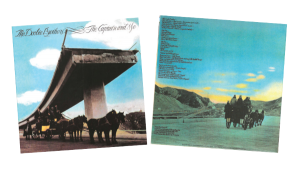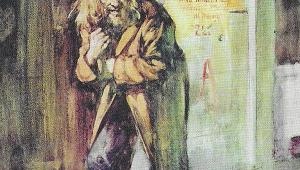U2: No Line on the Horizon

| Interscope Music •••• Sound ••••• |
No Line, on the surface, is one of U2's oddball records, a left-field experiment to file between the pseudonymous Passengers album and Side 2 of The Unforgettable Fire. And the backstory is well-nigh perfect. Early in the recording sessions, they hooked up with Rick Rubin - possibly the most powerful man in the music industry, and a producer who reputedly can do no wrong. So what did the band do? Scrapped those sessions, threw out the songs, and started fresh with Brian Eno and Daniel (or, as he's now billed, Danny) Lanois, the team behind U2's most experimental discs. And the Brian-driven Passengers aside, there's more Eno/Lanois presence here than ever before: They get co-writing credits on most of the songs and contribute instrumentally to every track.
On first listen, it sounds like U2 has made the ultimate move for artistic freedom - an album that's all soundscapes and abstraction, with no obvious hooks to throw the radio programmers. But there's a big difference between "no obvious hooks" and "no hooks at all," and No Line is a classic grower of an album. Rest assured, there's enough happening here to pull you through the first couple of plays, with new sonic textures in every tune, a lot of Eno's familiar keyboard colors, and in the case of "Fez - Being Born," a surprise change of course after the first minute. In fact, the inviting, multilayered sound is the exact opposite of the crisp digital production that Rubin and others have made fashionable.
There are times when Eno seems to be using the same oblique strategy he used on Talking Heads' Remain in Light, which was to begin the album with everything going on, then gradually strip it down to bare bones by album's end. This does mean that No Line is front-loaded - but it's hard to name a U2 album that isn't. And as usual (see How to Dismantle an Atomic Bomb's "Yahweh" and Zooropa's "The Wanderer"), the one truly oddball track - "Cedars of Lebanon," with Bono in uncomfortable Beat-poet mode - is at the end, where it's easiest to skip over.





























































